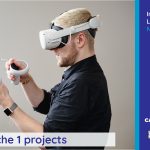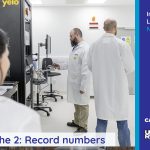Researcher in Residence: 40 new world class research projects confirmed by the Innovation Launchpad Network+
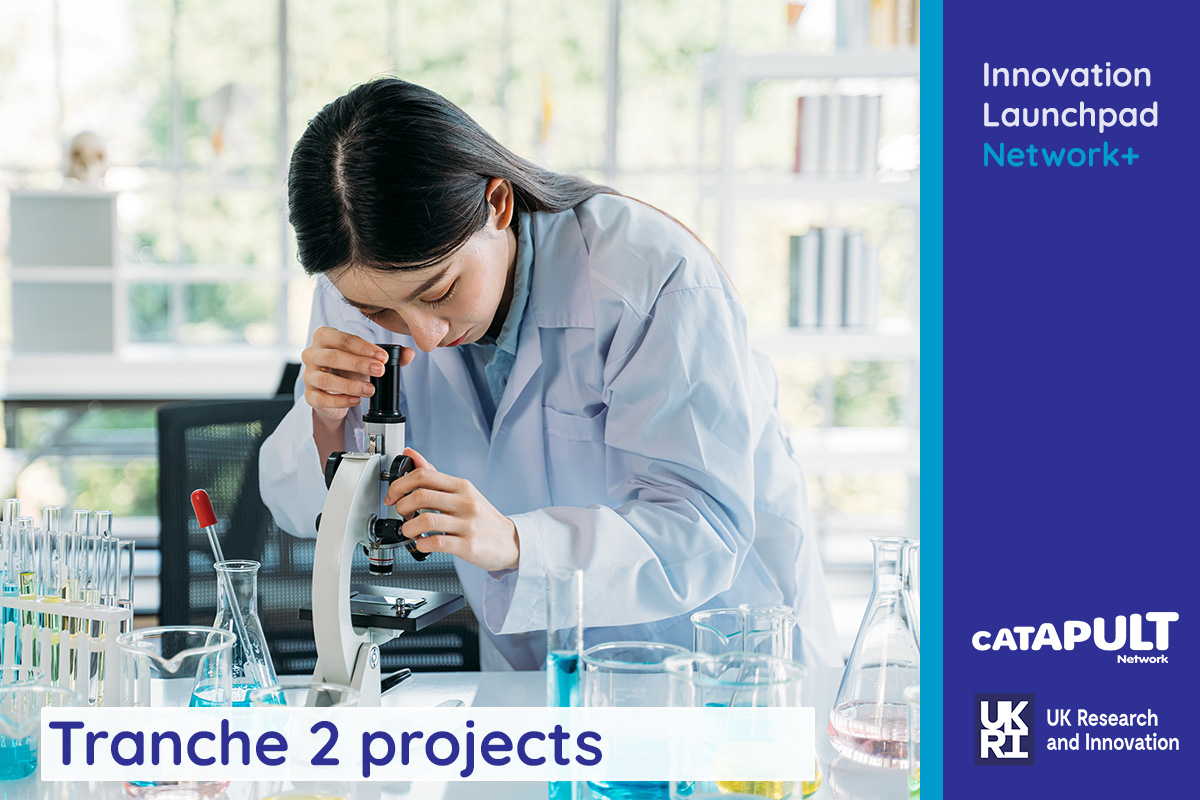
The second round of academics for the Innovation Launchpad Network’s Researcher in Residence scheme have been confirmed, with 39 world class projects set to make a huge impact to industry and to the UK’s strategic goals across three themes: Net Zero, Healthcare and Resilience.
The first phase attracted more than 120 enquiries from 30+ different academic institutions across the UK, with all 9 Catapults represented in a fascinating portfolio of applications. The second tranche, was an even bigger success with over 100 Expressions of Interest from more than 50 universities/institutions.
Following an intensive reviewing process, the Innovation Launchpad can reveal the awarded proposals below.
Director of the Innovation Launchpad Network+, Dr Pete Osborne, said: “We’re delighted to welcome our second round of Researchers in Residence and along with the EPSRC and Catapult Network, we’re excited by the potential impact of these projects. The multi-disciplinary nature of the proposals shows that the UK academic pool is full of creative and fascinating ideas and we’re glad to be tapping into that and linking them up with the Catapult Network.”
Each project is split into the key themes of the network below.
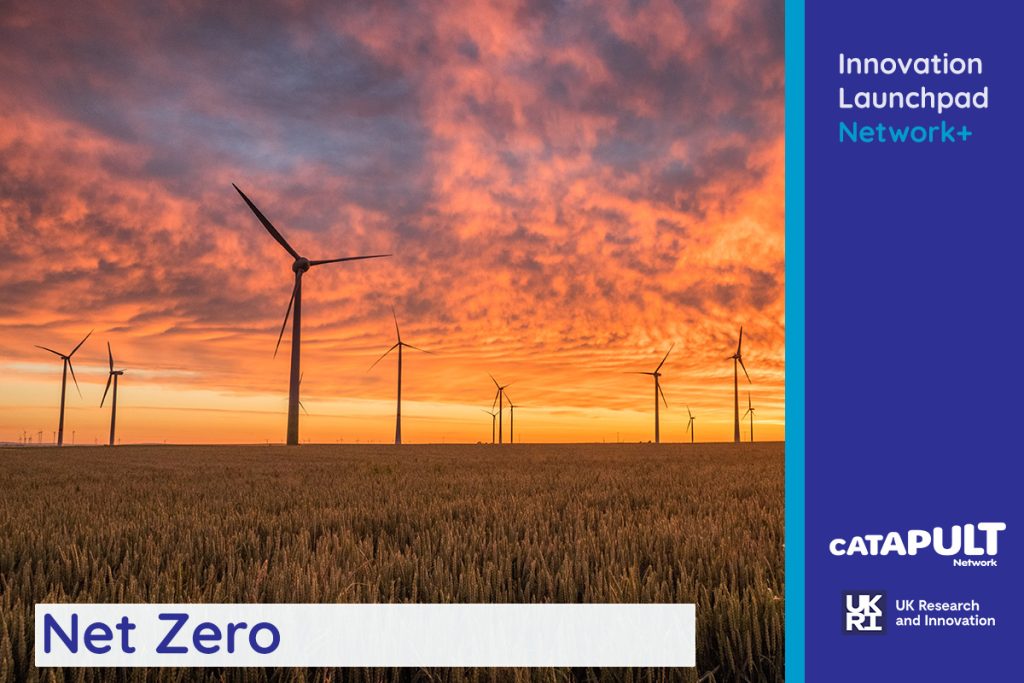
Net Zero
Soodamani Ramalingam – University of Hertfordshire / Digital Catapult – An investigation in decarbonising a typical general aviation airfield in the UK
Chris Snider – University of Bristol / High Value Manufacturing Catapult (Advanced Manufacturing Research Centre) – Zero-waste design: rapid physical/digital synchronisation and XR to reduce and remove lifecycle impact during design and prototyping
Jun Wang – University of Bristol / Compound Semiconductor Applications Catapult – Towards component-based testing and modelling of power magnetics under power electronics excitation
Arijit De – University of Manchester / Connected Places Catapult – Investigation of fuel bunkering and electric vessel charging operations at UK ports
Dawei Wu – University of Birmingham / Connected Places Catapult – Integrating industry and academic perspectives for advancing hydrogen technology: A road mapping approach
Yasir Ali –Loughborough University / Connected Places Catapult – Unravelling the barriers to the uptake of shared electric micro-mobility in India
Luis Torres-Retamal – University of Nottingham / Connected Places Catapult -Embedding circular economy principles into public procurement of Net Zero solutions
Yingli Wang – Cardiff University / Digital Catapult – Blockchain-powered digital material/product passport: Accelerating supply chain Net Zero goals
Mohammed Ismail – University of Hull / High Value Manufacturing Catapult (Advanced Manufacturing Research Centre) – Efficient and cost-effective system to produce and utilise offshore green hydrogen
Nina Dethlefs – University of Hull / Energy Systems Catapult – ChatOSW: A feasibility pilot for natural language-based decision support in offshore wind
Yang Lu – York St John University / Energy Systems Catapult – Energising sustainability: Collaborative leap towards energy efficiency using AI and data-driven decisions
Fadi Kahwash – Edinburgh Napier University / Energy Systems Catapult – Multi-scale energy systems modelling
Filipe Braga – University of Liverpool / High Value Manufacturing Catapult (CPI – Centre for Process Innovation) – Automation enabled scale-up of advanced Li-ion battery cathode coatings
Olaide Felix Olabode – University of Huddersfied / High Value Manufacturing Catapult (MTC – Manufacturing Technology Centre) – Core temperature and residual stress measurement using laser ultrasound for sustainable additive manufacturing
Tahsin Opoz – Liverpool John Moores University / High Value Manufacturing Catapult (MTC – Manufacturing Technology Centre) – Enabling reuse of high value tools for sustainable manufacturing
Kirthika SubramanianKala – University of Leeds / High Value Manufacturing Catapult (MTC – Manufacturing Technology Centre) – Tailor made 100% recycled concrete railway sleepers
Konstantinos Salonitis – Cranfield University / High Value Manufacturing Catapult (MTC – Manufacturing Technology Centre) – Advanced resource efficiency strategies for manufacturing systems
Mahdi Bodaghi – Nottingham Trent University / High Value Manufacturing Catapult (NCC – National Composites Centre) – Bio-inspired organic composites for yielding circular lifecycles through efficient manufacturing (BIO-CYCLE)
Michael Johnson – University of Nottingham / High Value Manufacturing Catapult (NCC – National Composites Centre) – Closed loop manufacturing of large, low cost fibre reinforced thermoplastic composites
Martin Smith – University of St Andrews / High Value Manufacturing Catapult (NMIS National Manufacturing Institute of Scotland) – Advancing hydrogen maritime confidence
Nick Polydorides – University of Edinburgh / High Value Manufacturing Catapult (NMIS National Manufacturing Institute of Scotland) – Scientific machine learning analytics for resilient additive manufacturing
Saeema Ahmed-Kristensen – University of Exeter / High Value Manufacturing Catapult (AMRC – Advanced Manufacturing Research Centre) – AI and data in design
Han Zhang Queen – Mary University of London High Value Manufacturing Catapult (WMG – Warwick Manufacturing Group) -(RECYCLENS) Enhancing confidence in the use of recycled polymers and composites via electrical sensing
Adam Stock – Heriot-Watt University / Offshore Renewable Energy Catapult – A control centred approach for off-grid green hydrogen production from wind energy
Katherine Sugar – University of Edinburgh/University of Oxford / Connected Places Catapult – Public procurement for a just, Net Zero transition
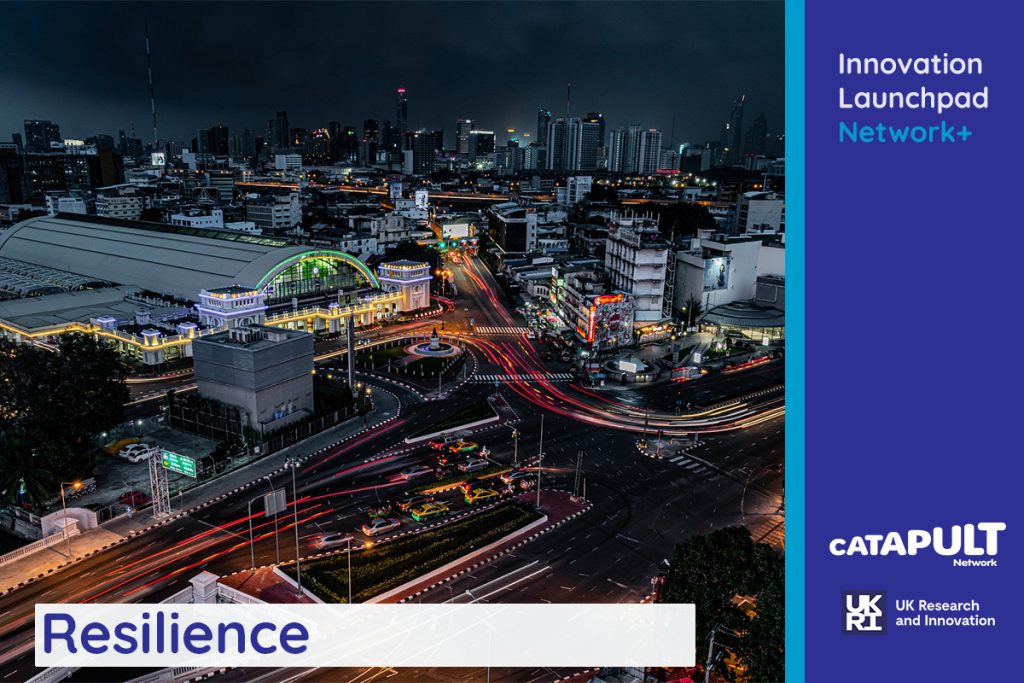
Resilience
José Miguel Rojas Siles – University of Sheffield / Digital Catapult – Accelerating software development and improving test quality using gamification
Enrico Tubaldi – University of Strathclyde / Connected Places Catapult – Improved models for the impact of floods on transport infrastructure assets
Zhixiang Chen – University of Sheffield / Digital Catapult – VIM: Towards a vision-based system for inventory management with deep learning
Philip Davies – University of Bristol / Digital Catapult – Supply chain resilience: A resilience model for responsive Additive Manufacturing systems
James Gopsill – University of Bristol / Digital Catapult – Adopting artificial intelligent (AI) agent based supply chains in the real world: Eliciting the
adoption challenges, value‐add propositions, and commercial opportunities through AI agent Additive Manufacturing (AM) supply chains demonstrations.
Seemal Asif – Cranfield University / High Value Manufacturing Catapult (AMRC – Advanced Manufacturing Research Centre) – Automated integration of external metrology for enhanced industrial robotic performance in manufacturing environments
Wenbin Zhong – University of Huddersfield / High Value Manufacturing Catapult (NMIS National Manufacturing Institute of Scotland) – On-machine surface measurement for ultra-precision 5-axis machines
Keith Davey – University of Manchester / High Value Manufacturing Catapult (NMIS National Manufacturing Institute of Scotland) – A deep learning approach to adaptive digital information structures for enhanced product life cycles
Hassna Louadah – University of Huddersfield / High Value Manufacturing Catapult (AMRC – Advanced Manufacturing Research Centre) – Improving the reliability and resilience of train fleet maintenance. Virtual maintenance depot and operations optimisation.
Viktor Doychinov – University of Bradford / Satellite Applications Catapult – Robust connectivity for robotic swarms and satellite constellations
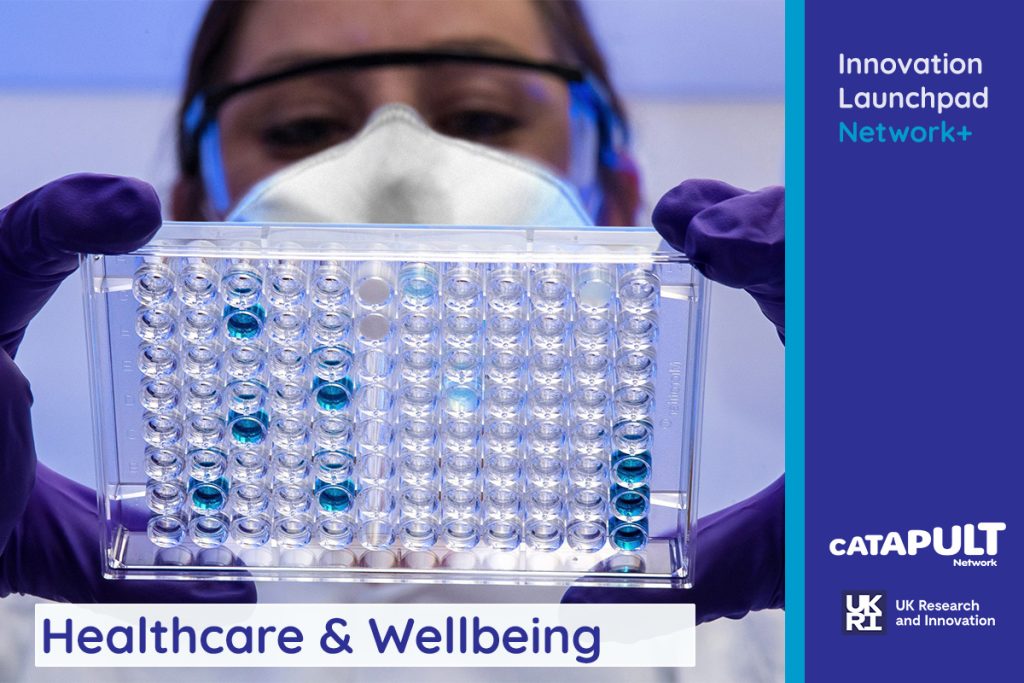
Healthcare and Wellbeing
Rui Pedro Ribeiro Ferreira de Carvalho – Durham University / High Value Manufacturing Catapult (CPI – Centre for Process Innovation) – Pioneering conformalised regression models in downstream pharmaceutical manufacturing
Robin Curtis – University of Manchester / Cell and Gene Therapy Catapult -Building new analytics and formulation capability for the Cell and Gene Therapy Catapult’s adeno-associated virus good manufacturing practice platform
Libby Duignan University of Liverpool High Value Manufacturing Catapult (CPI – Centre for Process Innovation) – Phage therapy for antibiotic-resistant bacteria: Overcoming manufacturing barriers in the UK
Astrid Werkmeister – University of Strathclyde / Satellite Applications Catapult -Decoding climate-induced displacement: A multi-dimensional analysis using satellite technology
More information about the scheme and the Network’s wider activities can be found at innovationlaunchpad.ac.uk/researchers-in-residence.
More about the scheme
The Innovation Launchpad Network+ is a national collaboration, led by the University of Sheffield along with the Universities of Leeds, Strathclyde, Warwick, Bristol and Exeter, and the Catapult Network. There are currently nine Catapults, each established by and working in partnership with Innovate UK. They support businesses across healthcare, energy, emerging technologies and manufacturing in transforming great ideas into valuable products and services. The network has been funded by the Engineering and Physical Sciences Research Council (EPSRC).
